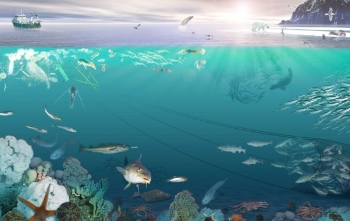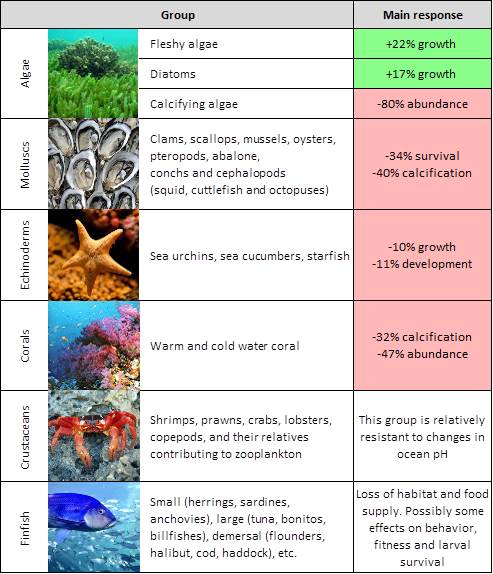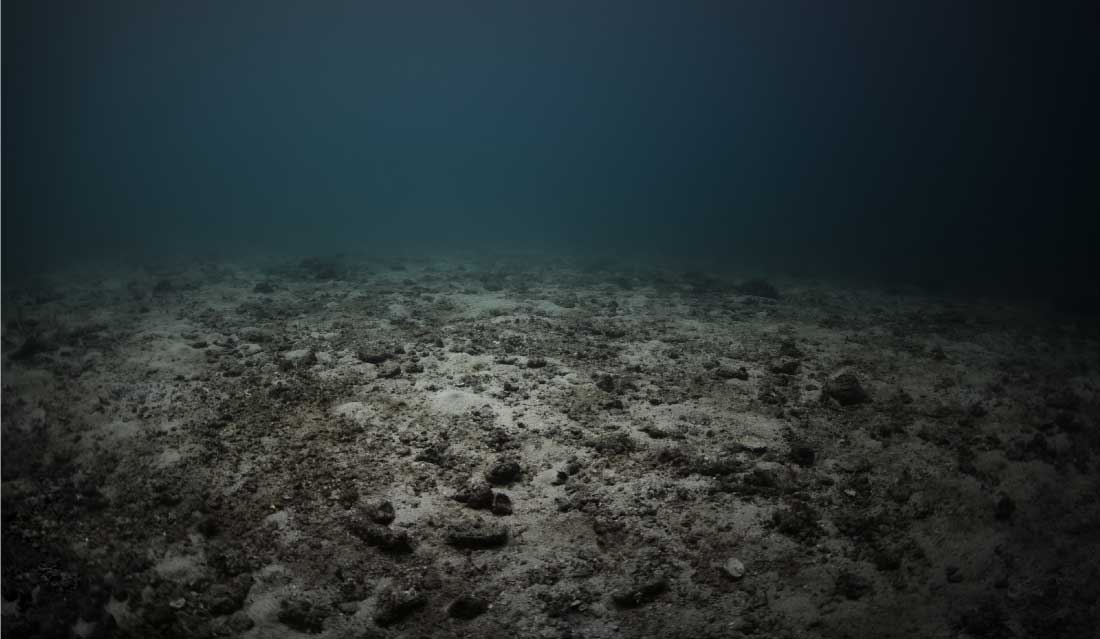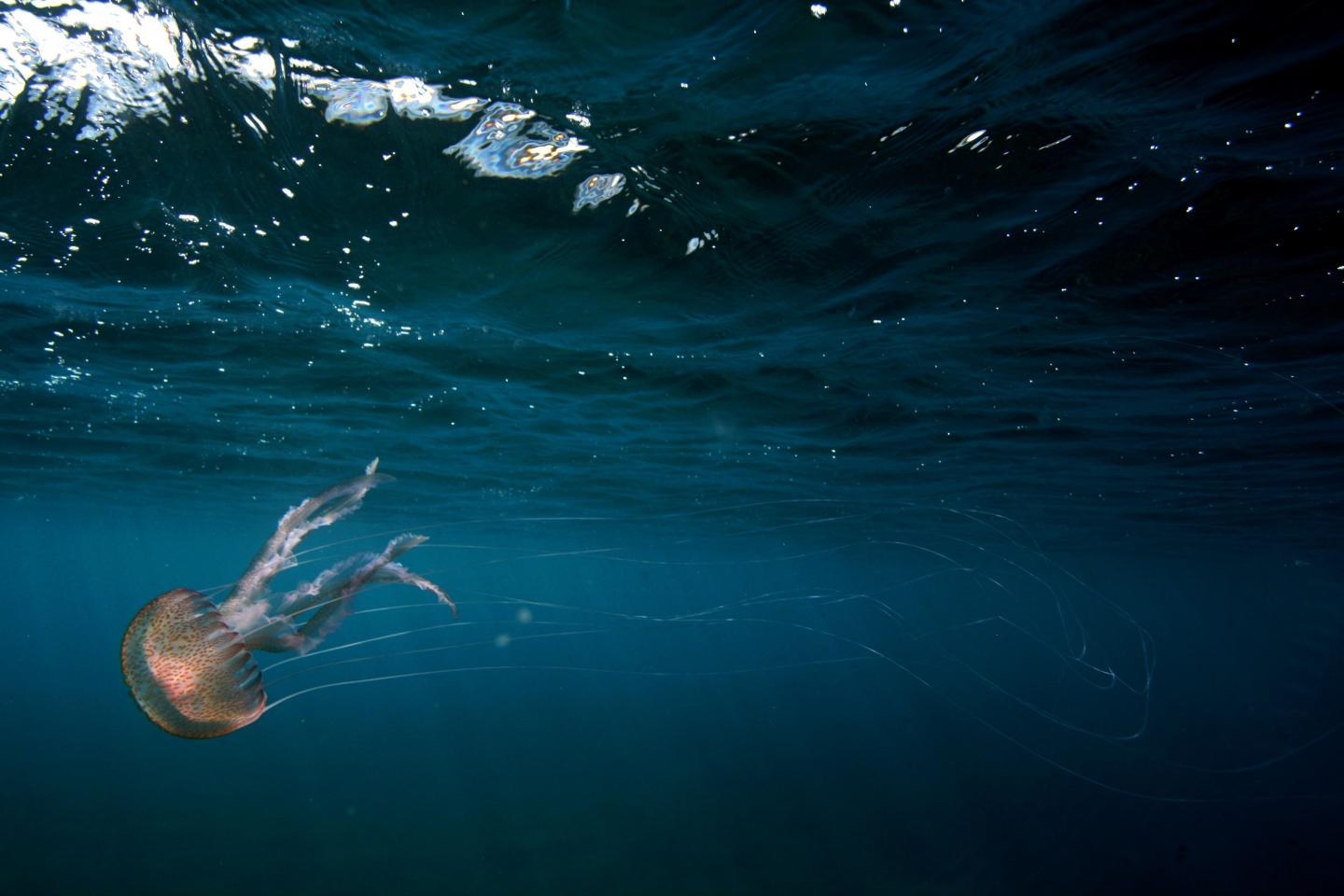How does ocean acidification affect marine life.
If you’re looking for how does ocean acidification affect marine life pictures information linked to the how does ocean acidification affect marine life topic, you have visit the right blog. Our site always provides you with suggestions for seeking the maximum quality video and picture content, please kindly search and find more enlightening video content and graphics that match your interests.
 Our Oceans Are Becoming Acidic How Can You Help Underwater Pictures Underwater New England Aquarium From pinterest.com
Our Oceans Are Becoming Acidic How Can You Help Underwater Pictures Underwater New England Aquarium From pinterest.com
The harmful impact of ocean and coastal acidification on marine life especially shellfish may affect the livelihood of vulnerable indigenous communities in Alaska on the West Coast and the Gulf Coast that depend on these coastal resources. As a consequence of acidification marine life face a two-fold challenge. Laboratory studies suggest changing ocean chemistry will 1 harm life forms that rely on carbonate-based shells and skeletons 2 harm organisms sensitive to acidity and 3 harm organisms higher up the food chain that feed on these sensitive. The Royal Society 2005.
When these organisms are at risk the entire food web may also be at risk.
Photosynthetic algae and seagrasses may benefit from higher CO 2 conditions in the ocean as they require CO 2 to live just like plants on land. For good reason ocean acidification is sometimes called osteoporosis of the sea Ocean acidification can create conditions that eat away at the minerals used by oysters clams lobsters shrimp coral reefs and other marine life to build their shells and skeletons. Ocean acidification is happening in places most of us dont regularly visit but it has the potential to radically change conditions for the sea life we know and rely on for sustenance. Animals that produce calcium carbonate structures have to spend extra energy repairing or thickening their shells which could impact their ability to grow and reproduce. Increasing ocean acidification has been shown to significantly reduce the ability of reef-building corals to produce their skeletons.
 Source: dolphinaris.com
Source: dolphinaris.com
Photosynthetic algae and seagrasses may benefit from higher CO 2 conditions in the ocean as they require CO 2 to live just like plants on land. Acidification of planet earths seas affects. The global threat to these resources posed by accelerating ocean acidification is becoming increasingly evident as the worlds oceans absorb carbon dioxide emissions. Human health is also a concern. The pH scale measures how acidic a substance is ranging from 0 to 14.
These changes in ocean chemistry can affect the behavior of non-calcifying organisms as well.
Certain fishs ability to detect predators is decreased in more acidic waters. A new analysis provides a holistic assessment of the impacts of climate change and ocean acidification on marine organisms including coral shellfish sea urchins and other calcifying species. These results suggest that different types of marine calcifying organisms will respond in very different ways to any future ocean acidification caused by increased CO 2 said Ries now an assistant professor at the University of North Carolina. Orr et al 2005.
 Source: thegoan.net
Source: thegoan.net
These results suggest that different types of marine calcifying organisms will respond in very different ways to any future ocean acidification caused by increased CO 2 said Ries now an assistant professor at the University of North Carolina. Orr et al 2005. Climate Change And Ocean Acidification In The Ocean 1077 Words 5 Pages. Human health is also a concern.
 Source: dolphinaris.com
Source: dolphinaris.com
Laboratory studies suggest changing ocean chemistry will 1 harm life forms that rely on carbonate-based shells and skeletons 2 harm organisms sensitive to acidity and 3 harm organisms higher up the food chain that feed on these sensitive. The importance of coastal resources goes beyond food to a potential loss of cultural heritage. Ocean acidification could limit the formation of new corals weaken existing corals and also exacerbate the problems associated with coral bleaching and storm damage. Animals that produce calcium carbonate structures have to spend extra energy repairing or thickening their shells which could impact their ability to grow and reproduce.

When these organisms are at risk the entire food web may also be at risk. Ocean acidification can affect any animal that has a calcium carbonate exoskeleton or shell including sea urchins pictured sea snails clams and oysters IWA Design Shutterstock Although the increase in acidity has only caused the oceans pH to drop to 81 this actually represents a 25 increase in acidity in the last two centuries alone. Effects of Ocean Acidification on Marine Photosynthetic Organisms Under the Concurrent Influences of Warming UV Radiation and Deoxygenation. In a recent paper coral biologists reported that ocean acidification could compromise the successful fertilization larval settlement and survivorship of Elkhorn coral an endangered species.
These results suggest that different types of marine calcifying organisms will respond in very different ways to any future ocean acidification caused by increased CO 2 said Ries now an assistant professor at the University of North Carolina. The global threat to these resources posed by accelerating ocean acidification is becoming increasingly evident as the worlds oceans absorb carbon dioxide emissions. Not only does this molecule acidify the ocean but it also has direct consequences on many types of coral and sea plant life. Ocean acidification can affect any animal that has a calcium carbonate exoskeleton or shell including sea urchins pictured sea snails clams and oysters IWA Design Shutterstock Although the increase in acidity has only caused the oceans pH to drop to 81 this actually represents a 25 increase in acidity in the last two centuries alone.
Ocean acidification is expected to impact ocean species to varying degrees.
The researchers set out to establish the rate at which these skeletal parts or ossicles were dissolving. The oceans take up over 1 million tons of anthropogenic CO 2 per hour increasing dissolved p CO 2 and decreasing seawater pH in a process called ocean acidification OA. The importance of coastal resources goes beyond food to a potential loss of cultural heritage. Ocean acidification can negatively affect marine life as it causes shells and skeletons made from calcium carbonate to dissolve. Marine invertebrates like brittle stars can signify the effects of ocean acidification and may be used to track its effects on vulnerable organisms said Beverly Walker lead author of the paper and supervisor of the Crary Science.
 Source: pinterest.com
Source: pinterest.com
The harmful impact of ocean and coastal acidification on marine life especially shellfish may affect the livelihood of vulnerable indigenous communities in Alaska on the West Coast and the Gulf Coast that depend on these coastal resources. Effects of Ocean Acidification on Marine Photosynthetic Organisms Under the Concurrent Influences of Warming UV Radiation and Deoxygenation. Marine invertebrates like brittle stars can signify the effects of ocean acidification and may be used to track its effects on vulnerable organisms said Beverly Walker lead author of the paper and supervisor of the Crary Science. Decreased carbonate carbonate availability and increased acidity. Studies show ocean acidification is already affecting the physiology and behaviour of marine animals and plants creating both winners and losers and ecosystem changes.
Effects of Ocean Acidification on Marine Photosynthetic Organisms Under the Concurrent Influences of Warming UV Radiation and Deoxygenation. The Royal Society 2005. Decreased carbonate carbonate availability and increased acidity. Orr et al 2005.
Not only does acidification make it more difficult for these animals to make their shells but it also can lead to the weakening or destruction of already formed shells Australian Academy of Science 2008.
Oceana acidification may cause many negative effects on a variety of marine species and ecosystems which would have rippling consequences throughout the entire ocean. Increasing ocean acidification has been shown to significantly reduce the ability of reef-building corals to produce their skeletons. These changes in ocean chemistry can affect the behavior of non-calcifying organisms as well. Marine invertebrates like brittle stars can signify the effects of ocean acidification and may be used to track its effects on vulnerable organisms said Beverly Walker lead author of the paper and supervisor of the Crary Science.
 Source: in.pinterest.com
Source: in.pinterest.com
Acidification of planet earths seas affects. The rapid spread of ocean acidification in the western Arctic has implications for marine life particularly clams mussels and tiny sea snails that may have difficulty building or maintaining. Studies show ocean acidification is already affecting the physiology and behaviour of marine animals and plants creating both winners and losers and ecosystem changes. Some shellfish will struggle to grow their shells with larval stages particularly vulnerable.
 Source: thegoan.net
Source: thegoan.net
Orr et al 2005. The importance of coastal resources goes beyond food to a potential loss of cultural heritage. These results suggest that different types of marine calcifying organisms will respond in very different ways to any future ocean acidification caused by increased CO 2 said Ries now an assistant professor at the University of North Carolina. Studies show ocean acidification is already affecting the physiology and behaviour of marine animals and plants creating both winners and losers and ecosystem changes.
 Source: coastadapt.com.au
Source: coastadapt.com.au
These changes in ocean chemistry can affect the behavior of non-calcifying organisms as well. These results suggest that different types of marine calcifying organisms will respond in very different ways to any future ocean acidification caused by increased CO 2 said Ries now an assistant professor at the University of North Carolina. These changes in ocean chemistry can affect the behavior of non-calcifying organisms as well. Studies show ocean acidification is already affecting the physiology and behaviour of marine animals and plants creating both winners and losers and ecosystem changes.
The ocean provides resources key to human health and well-being including food oxygen livelihoods blue spaces and medicines.
These results suggest that different types of marine calcifying organisms will respond in very different ways to any future ocean acidification caused by increased CO 2 said Ries now an assistant professor at the University of North Carolina. The global threat to these resources posed by accelerating ocean acidification is becoming increasingly evident as the worlds oceans absorb carbon dioxide emissions. The researchers set out to establish the rate at which these skeletal parts or ossicles were dissolving. As a consequence of acidification marine life face a two-fold challenge. One of the most devastating impacts of rising ocean acidity could be the collapse of food webs Marine animals interact in complex food webs that may be disrupted by ocean acidification due to losses in key.
 Source: coastadapt.com.au
Source: coastadapt.com.au
The global threat to these resources posed by accelerating ocean acidification is becoming increasingly evident as the worlds oceans absorb carbon dioxide emissions. A new analysis provides a holistic assessment of the impacts of climate change and ocean acidification on marine organisms including coral shellfish sea urchins and other calcifying species. Climate Change And Ocean Acidification In The Ocean 1077 Words 5 Pages. Animals that produce calcium carbonate structures have to spend extra energy repairing or thickening their shells which could impact their ability to grow and reproduce. The ocean provides resources key to human health and well-being including food oxygen livelihoods blue spaces and medicines.
Effects of Ocean Acidification on Marine Photosynthetic Organisms Under the Concurrent Influences of Warming UV Radiation and Deoxygenation.
The importance of coastal resources goes beyond food to a potential loss of cultural heritage. Laboratory studies suggest changing ocean chemistry will 1 harm life forms that rely on carbonate-based shells and skeletons 2 harm organisms sensitive to acidity and 3 harm organisms higher up the food chain that feed on these sensitive. These results suggest that different types of marine calcifying organisms will respond in very different ways to any future ocean acidification caused by increased CO 2 said Ries now an assistant professor at the University of North Carolina. The ocean provides resources key to human health and well-being including food oxygen livelihoods blue spaces and medicines.
 Source: futureoflife.org
Source: futureoflife.org
As a consequence of acidification marine life face a two-fold challenge. The researchers set out to establish the rate at which these skeletal parts or ossicles were dissolving. Ocean acidification is affecting the entire worlds oceans including coastal estuaries and waterways. For example ocean acidification makes it harder for some marine animals including corals to form their shells and skeletons but it makes it easier for some marine plants such as seagrasses and seaweeds to photosynthesise.
 Source: thegoan.net
Source: thegoan.net
Oceana acidification may cause many negative effects on a variety of marine species and ecosystems which would have rippling consequences throughout the entire ocean. Certain fishs ability to detect predators is decreased in more acidic waters. Crabs lobsters shrimp calcifying algae and limpets could build more massive skeletons while tropical corals and urchins and most snails. The rapid spread of ocean acidification in the western Arctic has implications for marine life particularly clams mussels and tiny sea snails that may have difficulty building or maintaining.
 Source: in.pinterest.com
Source: in.pinterest.com
The ocean provides resources key to human health and well-being including food oxygen livelihoods blue spaces and medicines. The more acidic the ocean the faster the shells dissolve. Climate Change And Ocean Acidification In The Ocean 1077 Words 5 Pages. Guinotte.
The Royal Society 2005.
Ocean acidification can affect any animal that has a calcium carbonate exoskeleton or shell including sea urchins pictured sea snails clams and oysters IWA Design Shutterstock Although the increase in acidity has only caused the oceans pH to drop to 81 this actually represents a 25 increase in acidity in the last two centuries alone. On the other hand studies have shown that lower environmental calcium carbonate saturation states can have a dramatic effect on some calcifying species including oysters clams sea. The Royal Society 2005. Ocean acidification is happening in places most of us dont regularly visit but it has the potential to radically change conditions for the sea life we know and rely on for sustenance. Not only does this molecule acidify the ocean but it also has direct consequences on many types of coral and sea plant life.
 Source: pinterest.com
Source: pinterest.com
Climate Change And Ocean Acidification In The Ocean 1077 Words 5 Pages. Not only does this molecule acidify the ocean but it also has direct consequences on many types of coral and sea plant life. These results suggest that different types of marine calcifying organisms will respond in very different ways to any future ocean acidification caused by increased CO 2 said Ries now an assistant professor at the University of North Carolina. For example ocean acidification makes it harder for some marine animals including corals to form their shells and skeletons but it makes it easier for some marine plants such as seagrasses and seaweeds to photosynthesise. Crabs lobsters shrimp calcifying algae and limpets could build more massive skeletons while tropical corals and urchins and most snails.
Increasing ocean acidification has been shown to significantly reduce the ability of reef-building corals to produce their skeletons.
Decreased carbonate carbonate availability and increased acidity. Not only does acidification make it more difficult for these animals to make their shells but it also can lead to the weakening or destruction of already formed shells Australian Academy of Science 2008. As a consequence of acidification marine life face a two-fold challenge. Acidification of planet earths seas affects.
 Source: pinterest.com
Source: pinterest.com
The ocean provides resources key to human health and well-being including food oxygen livelihoods blue spaces and medicines. The pH scale measures how acidic a substance is ranging from 0 to 14. Some shellfish will struggle to grow their shells with larval stages particularly vulnerable. The harmful impact of ocean and coastal acidification on marine life especially shellfish may affect the livelihood of vulnerable indigenous communities in Alaska on the West Coast and the Gulf Coast that depend on these coastal resources. Crabs lobsters shrimp calcifying algae and limpets could build more massive skeletons while tropical corals and urchins and most snails.
 Source: cbsnews.com
Source: cbsnews.com
The Royal Society 2005. Photosynthetic algae and seagrasses may benefit from higher CO 2 conditions in the ocean as they require CO 2 to live just like plants on land. The global threat to these resources posed by accelerating ocean acidification is becoming increasingly evident as the worlds oceans absorb carbon dioxide emissions. A recent WHOI study has shown that ocean acidification particularly impedes the corals thickening process decreasing the skeletons density and leaving them more vulnerable to breaking. Animals that produce calcium carbonate structures have to spend extra energy repairing or thickening their shells which could impact their ability to grow and reproduce.
 Source: pinterest.com
Source: pinterest.com
The pH scale measures how acidic a substance is ranging from 0 to 14. For example ocean acidification makes it harder for some marine animals including corals to form their shells and skeletons but it makes it easier for some marine plants such as seagrasses and seaweeds to photosynthesise. Ocean acidification can negatively affect marine life as it causes shells and skeletons made from calcium carbonate to dissolve. Ocean acidification is happening in places most of us dont regularly visit but it has the potential to radically change conditions for the sea life we know and rely on for sustenance. Effects of Ocean Acidification on Marine Photosynthetic Organisms Under the Concurrent Influences of Warming UV Radiation and Deoxygenation.
This site is an open community for users to do sharing their favorite wallpapers on the internet, all images or pictures in this website are for personal wallpaper use only, it is stricly prohibited to use this wallpaper for commercial purposes, if you are the author and find this image is shared without your permission, please kindly raise a DMCA report to Us.
If you find this site good, please support us by sharing this posts to your own social media accounts like Facebook, Instagram and so on or you can also bookmark this blog page with the title how does ocean acidification affect marine life by using Ctrl + D for devices a laptop with a Windows operating system or Command + D for laptops with an Apple operating system. If you use a smartphone, you can also use the drawer menu of the browser you are using. Whether it’s a Windows, Mac, iOS or Android operating system, you will still be able to bookmark this website.





